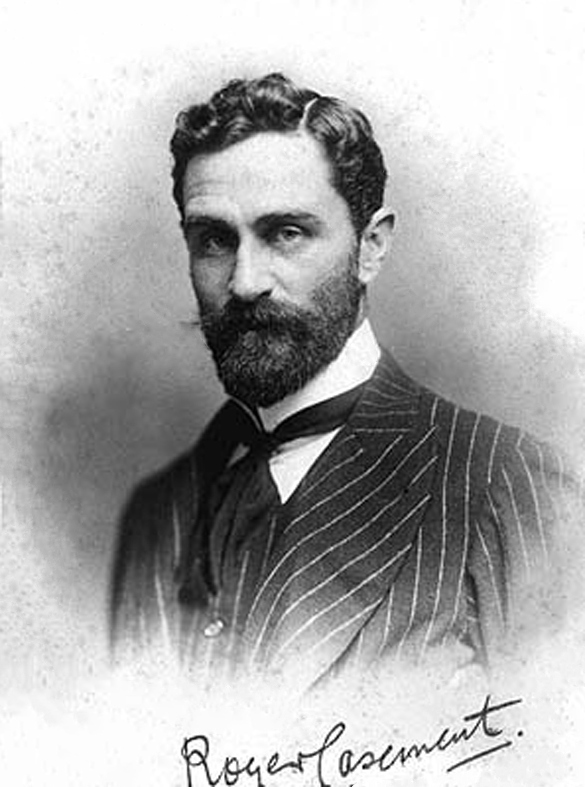Irish Legal Heritage: Hanged by a comma

Irish revolutionary Roger Casement, the ‘father of 20th-century human rights investigations’, was knighted in 1911 for his investigations into human rights abuses in the Congo and Peru while he worked a British Consul.
An Irish Republican, Casement went to Germany in 1914 in an effort to secure German military support for Irish independence. However, suspicious of the Germans toying with him when they provided significantly fewer arms than they promised, Casement left for Ireland in April 1916 with the hope that he could convince Eoin McNeill to call off the Easter Rising.
Casement travelled to Kerry in a German submarine, but had been suffering from malaria that he had contracted while working in the Congo and was too weak to travel further than a few miles from the coast. Three days before the beginning of the Easter Rising, Casement was arrested by the Royal Irish Constabulary at a site now known as Casement’s Fort near Tralee.
Casement was brought to London where he was tried in the High Court for high treason, contrary to the Treason Act 1351. Since the crimes he was accused of had occurred in Germany, much of Casement’s case hinged on statutory interpretation of the Treason Act 1351, which had been translated from Norman French to state: ‘if a do man levy War against our Lord the King in his Realm, or be adherent to the King’s enemies in his Realm, giving to them aid and comfort in the Realm, or elsewhere, and thereof be probably attainted of open deed’.
It was argued that this meant that the offence of treason included levying war against the king in his realm, or supporting the king’s enemies (located in the Realm, or elsewhere) by giving them ‘aid and comfort’ in the realm.
However, the Court omitted the comma after ‘Realm, or elsewhere’, and interpreted the statute to include a third offence of giving aid and comfort to the King’s enemies outside Britain.
As such, Casement was sentenced to death by hanging after being found guilty of ‘High treason by adhering to the King’s enemies elsewhere than in the King’s realm to wit, in the Empire of Germany, contrary to the Treason Act, 1351’.
Seosamh Gráinséir










